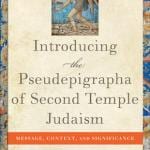Last year Joel Kaminsky and Mark Reasoner published an article in Harvard Theological Review 112.4 (2019) on “The Meaning and Telos of Israel’s Election: An Interfaith Response to N.T. Wright’s Reading of Paul,” pp. 421-446.
I thought they scored a few good points against Wright, but on the whole, I thought they were grossly unfair, putting the worst possible spin on Wright’s position, and I think they got a lot wrong about second Temple Judaism and the apostle Paul.
So I wrote a rejoinder which HTR has just now published and Reasoner and Kaminsky have their own surrejoinder in the latest issue.
Michael F. Bird, “N. T. Wright and Paul’s Supersessionism: A Response to Kaminsky and Reasoner,” HTR 113.4 (2020): 498-512.
Joel Kaminsky and Mark Reasoner offered a concerted critique of N. T. Wright’s account of Israel’s election as well as Wright’s description of the apostle Paul’s messianic atonement theology. They allege that Wright treats Israel’s election as instrumental rather than intrinsic and his exegesis of Rom 5:20‒21 results in a rehearsal of anti-Jewish tropes. This essay responds to them by 1) claiming that many of their criticisms are inaccurate representations of Wright’s views; 2) defending a missional perspective of Israel’s view of election; 3) asserting that Wright’s reading of Rom 5:20 about the Torah multiplying sin within Israel is neither immoral, nor implausible, nor idiosyncratic; and 4) offering some final thoughts about Wright and Jewish-Christian relations.
Joel Kaminsky and Mark Reasoner, “In Quest of a Coherent Portrait of Paul: A Rejoinder to Michael Bird,” HTR 113.4 (2020): 513-527.
This rejoinder to Michael Bird’s critique of our argument in Joel Kaminsky and Mark Reasoner, “The Meaning and Telos of Israel’s Election: An Interfaith Response to N. T. Wright’s Reading of Paul,” HTR 112 (2019) 421–46, acknowledges that Wright recognizes a dimension of intrinsic value in God’s election of Israel, while it shows how Wright’s metanarrative is not only unduly skewed toward an instrumental view of Israel’s election but also, in effect, totally redefines Israel. Our rebuttal first reiterates some of our original claims and also presents new arguments against an exegesis of Second Isaiah that portrays Israel as divinely called to bring light or Torah to the nations. Later Second Temple sources also did not understand Israel as failing to fulfill a divine call to missionize the gentiles. Bird’s own inconsistency on the mission orientation of Israel weakens his defense of Wright here. Wright’s exegesis of Rom 5:20–21 as teaching that God intentionally gave Torah to draw the world’s sins onto Israel and Bird’s defense of this on the basis of Isaiah 53 are anomalous and untenable in the light of other scholars’ readings of Romans and the rest of the New Testament. Finally, against Bird, Wright does indeed read non-Christ-confessing Jews out of Israel in a highly problematic way. Bird’s agreement with us against Wright that “all Israel” in Rom 11:26 refers to corporeal Israel strengthens our original critique of Wright’s redefinition of Israel in Rom 9–11.












